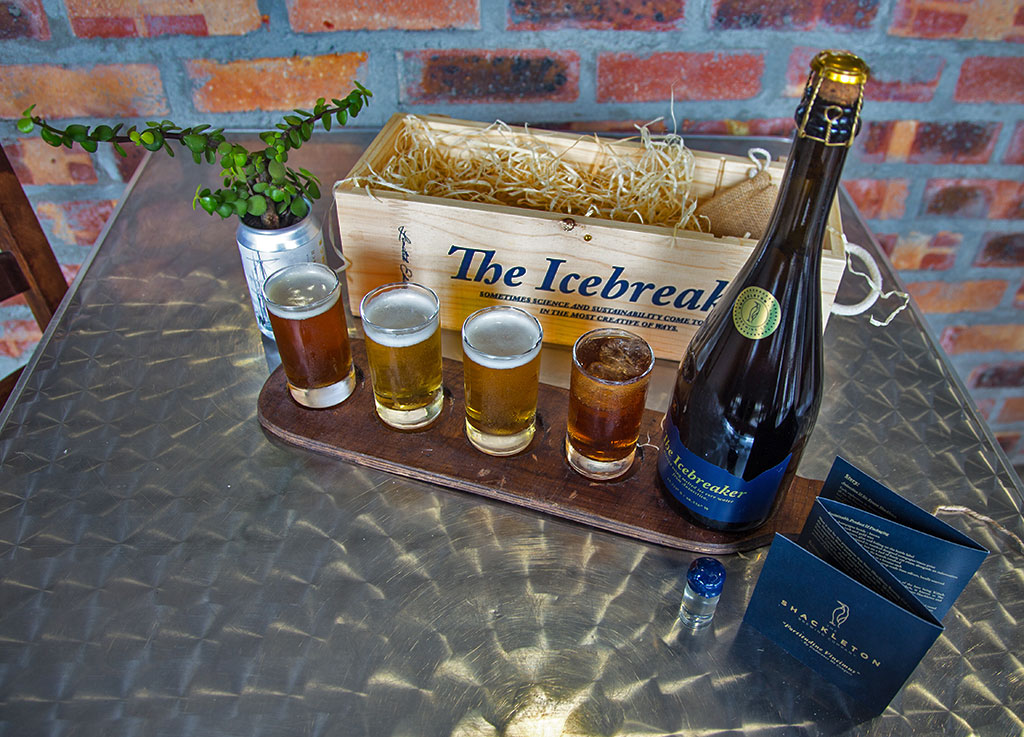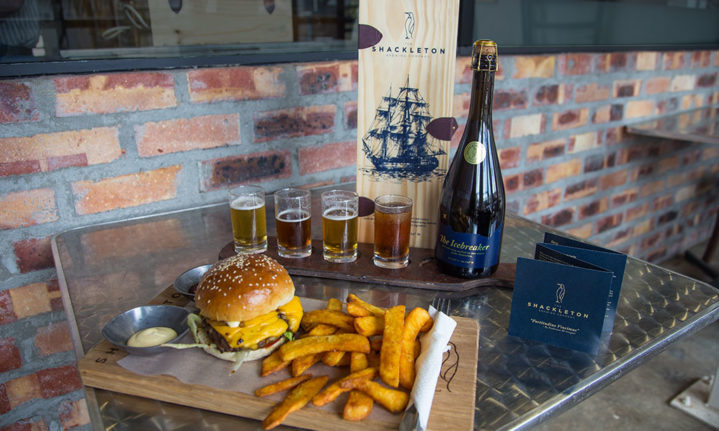Sir Ernest Shackleton’s heroic Antarctic journeys have, for generations, inspired those who love stories of adventure and triumph against almost impossible odds.
His exploits still fire the imagination of many today and just last year a team of scientists tried and failed to find the Endurance, Shackleton’s ship which sank in the Weddell Sea in 1915.

Various beers are up for tasting.
Included among the many influenced by Shackleton’s courageous leadership and exploits is a young beer brewer from Cape Town – Stephen Peel, the founder of the Shackleton Brewing Company.
While studying science at the University of Cape Town, Stephen was fortunate enough to travel to the frozen continent as part of the SANAP (South African National Antarctic Programme) take over expedition; a dual purpose three-month
expedition researching climate change and oceanography as well as assisting in the take-over operations at the South African research base SANAE IV (South African National Antarctic Expedition).
As a student, Stephen experimented with brewing beer at home but as his passion and expertise grew, his hobby developed into a professional enterprise and his adventures in Antarctica inspired the brand.
The Shackleton Brewing Company, situated in Salt River, produces a number of craft beers including a Kölsch, a light easy drinking hybrid which falls somewhere between a lager and a light ale. I enjoyed a tasting at the taproom in Salt River along with a hearty beef burger and chips.
The pale ale had a fresh citrus appeal appeal and according to the brew master, showcases dark fruity hops. I was surprised to find a rooibos iced tea infused with vodka on the menu and this was truly delightful.

The food is absolutely scrumptious.
The pièce de résistance, however, is certainly The Icebreaker, a limited edition Kölsch brewed using melted ice core water from Antarctica. This is a project aimed at celebrating science and sustainability in Antarctica.
To create this beer, the company sourced discarded Antarctic sea ice cores from the UCT laboratories. This became possible after UCT scientists no longer needed them and allowed Shackleton collect and transport these as quickly as possible to the brewing company, which is about four kilometres away.
The ice was melted at the brewery and the water immediately sent for testing. Stephen and his team knew that the water would need treatment, but they were surprised to discover how saline the cores actually were.
A process of reverse osmosis was used to treat the water and it was brought to the necessary quality needed for the Kölsch recipe. The water was carefully profiled before the organic malt was added as well as a number of salts and minerals as part of the process.
Who wouldn’t want to say they’ve sipped beer made from Antarctic melt water? Now you can.
The brilliantly clear golden coloured German-styled lager hybrid is sold in a 750ml champagne bottle wrapped in tissue paper with a nautically-themed print and is incased in a wooden box alongside a vile of the pure Antarctic ice water.
Dry-hopped with Smaragd Hops, the flavour profile is described as having ‘low to medium bitterness, refreshing with high spicy hop presence’ and is clean, crisp and refreshing.
With the beer representing science and sustainability, a portion of 10 percent of sales of The Icebreaker beer is donated to UCT’s SEAmester Programme.
The Department of Science and Technology’s programme introduces marine science as an applied and cross-disciplinary field to postgraduate students allowing them to do hands-on research aboard the SA Agulhas II.
For more information or to order your own Icebreaker, visit shackletonbc.co.za
Images: Elise Kirsten





















